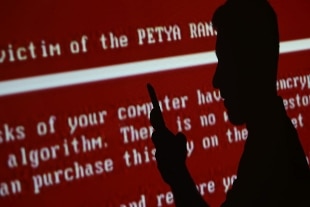Cybersecurity, the president of Copasir victim of hackers
Share
by Celia Guimaraes
29 April 2021 At the moment there is no detailed information on the possible
cyber attack suffered by the president of Copasir, Raffaele Volpi
. From the WhatsApp account on his personal phone, messages were sent to the contacts in the address book asking for credit card numbers ('I bought from the internet but my credit card has expired, can I use yours and make a transfer?'), that Volpi
reported to the postal police.
According to the computer engineer
Pierluigi Paganini
, however, some possible scenarios are extremely worrying: "The incident reported by the media could be the result of a 'SIM Swapping' attack or the compromise of the phone using a malicious code", explains Paganini, an Italian member of the
Enisa
board
, the 'European Union Agency for Cybersecurity
.
"In a 'SIM swapping' attack, he explains, the attacker manages to
get hold of the phone number
of the rightful owner by deceiving the telephone operator with social engineering techniques. The attacker, in fact, manages to get a new SIM, associated with the victim's number, by the operator through a shop or online. If successful, the attacker has a SIM associated with the victim's number and can therefore act in the name and on behalf of the victim. "
This attack also allows the violation of multiple online services that use the telephone number as an authentication system, notes the computer scientist, including "
email services
, instant messaging services like WhatsApp, and even
banking services
in some specific scenarios."
Another possible scenario of President Volpi's phone attack sees his phone being compromised by means of
malware or malicious code
. "At this point the malware installed on the device allows the attacker to take possession of it and
manage all the apps
installed on it and
access all the data
on it", underlines Paganini.
How is it possible to infect a mobile phone? "Simply by clicking on a link sent by an attacker or by installing a compromised app. There are also more complex scenarios that involve no action on the part of the victim, but are typically associated with attacks by intelligence agencies or law enforcement agencies and exploit
zero-day holes
, i.e. not publicly known. Generic and unsophisticated malware can be detected with
security software
, but unfortunately in many cases it is easy to bypass even the latter with some precautions ". Considering the role of Copasir president, Paganini argues," both scenarios are disconcerting to say the least. , and I hope we can have more details about it in the next few hours ".

